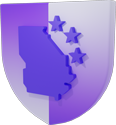A coalition of Canadian media organizations has launched a lawsuit against OpenAI, claiming the company’s ChatGPT product infringed copyrights by utilizing their journalism without authorization, according to a Nov. 29 court filing. The plaintiffs include prominent outlets such as CBC/Radio-Canada, The Toronto Star, and The Globe and Mail. They are seeking damages and an injunction to prevent OpenAI from continuing to use their content.
The lawsuit, filed in the Ontario Superior Court of Justice, accuses OpenAI of extracting and profiting from Canadian news content without permission. The group alleged: “OpenAI is capitalizing on the use of our content, disregarding copyright laws and online terms of use.” OpenAI defended its practices, stating that its AI models are trained on publicly available information under the principles of fair use and related copyright laws. The company also highlighted its partnerships with news organizations and its opt-out options for publishers.
The company has also faced scrutiny for missteps, including a recent admission that engineers inadvertently erased critical evidence related to AI training data. The outcome of this case could have significant implications for copyright law in the AI era as courts grapple with the balance between innovation and intellectual property rights.
- a16z Cuts UK Crypto Plans, Eyes on U.S. After Trump’s Win
- Asia’s Crypto Adoption: Hong Kong Official Plots Rules For Stablecoins, Crypto OTC Services
- Robinhood Considers Listing Bitcoin and Crypto Futures in U.S. and Europe
- El Salvador’s Bonds Spike Despite Bitcoin Criticism
- Brazil Proposes Ban on Stablecoin Withdrawals to Wallets
- Ripple Grants $50 Million to Nonprofit Aiming to Raise US Crypto Awareness






